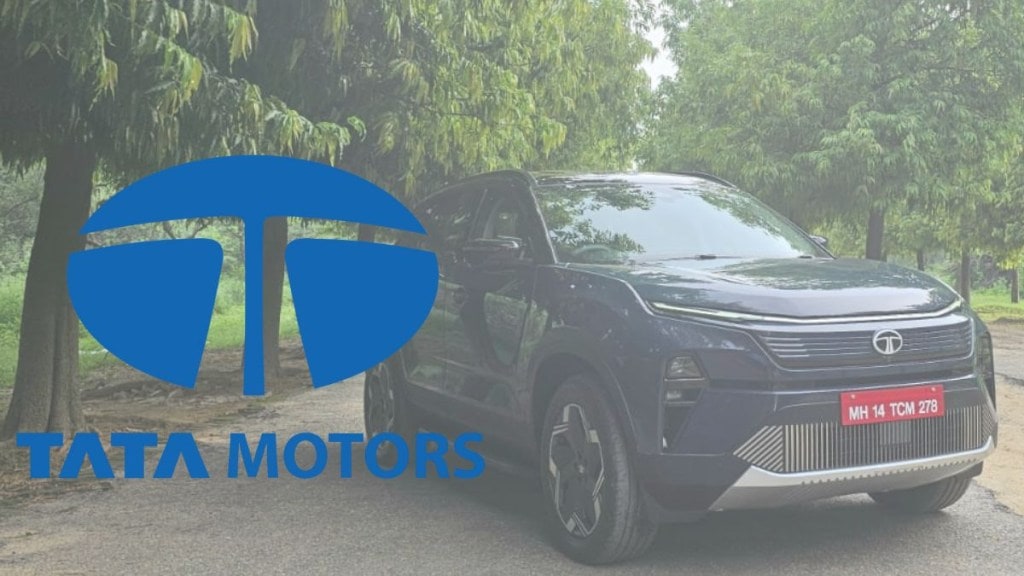Tata Motors has reported a 30.46% YoY drop in its Q1FY26 net profit to Rs 3,924 crore Vs Rs 5,643 crore net profit in the quarter last fiscal (Q1FY25). The revenue from operations in Q1FY26 dropped 2.5% YoY to Rs 103,792 crore from Rs 106,399 crore in Q1FY25 .
The performance in the quarter, it said, was impacted by volume decline in all businesses and a drop in profitability primarily at JLR. With the demand situation likely to remain challenging, Tata Motors said that it will continue to focus on strengthening the business fundamentals and mitigate the impact of tariffs by leveraging the brand strength to drive a better mix, and targeted actions to improve contribution margins.
PB Balaji, Group Chief Financial Officer, Tata Motors, said, “Despite stiff macro headwinds, the business delivered a profitable quarter, supported by strong fundamentals. As tariff clarity emerges and festive demand picks up, we are aiming to accelerate performance and rebuild momentum across the portfolio. Against the backdrop of the upcoming demerger in October 2025, our focus remains firmly on delivering a strong second-half performance.”
Free cash flow (automotive) for the quarter, was at negative Rs 12.3K crore primarily on account of adverse working capital due to seasonality & tariffs. Net automotive debt was at Rs 13.5K crore (including leases Rs 9.5K crore).
Tata Motors net auto debt was at Rs 13.5K crore at the end of Q1FY26.
Tata Motors Q1: Performance across business verticals
Tata Commercial Vehicles (Tata CV) posted Q1FY26 revenue at Rs 17.0K crore, recording a drop of 4.7 per cent. The business continued to witness double digit EBITDA margins of 12.2 per cent and EBIT margins of 9.7 per cent in Q1FY26, led by better realizations and material cost savings. The CV segment wholesales came in at 88.0K units, down 6.0 per cent. In a regulatory filing, it said, the domestic volumes were down by 9 per cent while exports were up by 68 per cent. During the quarter, Tata Motors also launched air conditioned cabins and cowls across the Truck range.
Girish Wagh, Executive Director, Tata Motors, said, “Q1FY26 was a challenging quarter for the commercial vehicle industry, with subdued demand across key segments impacting overall performance. We also witnessed a decline in domestic sales volumes, reflecting broader market softness and delayed fleet replacement cycles, while segments like Buses and Vans showed resilience and our International Business delivered growth.”
Tata Passenger Vehicles (Tata PV) posted Q1 revenue at Rs 10.9K crore, down 8.2 per cent on account of drop in volumes. EBITDA margin was down by 180 bps YoY at 4.0 per cent. Tata Motors said that the PV industry in Q1 experienced volume pressures, particularly in May and June, with flat growth reflecting continued softness in demand. In Q1FY26, wholesale volumes stood at 124.8K units, down 10.1 per cent on account of industry decline and transitions for new models of Altroz, Harrier & Safari. Profitability, it added, was impacted as a result of adverse volumes, realizations and impact of leverage, but was offset in part by its continued drive on savings in variable costs.
Shailesh Chandra, Managing Director, TMPV and TPEM, said, “Q1FY26 was a subdued quarter for the passenger vehicle industry, with volume pressures persisting across most segments. Demand softness weighed on overall performance, although the Electric Vehicle category remained a bright spot, supported by new launches and growing customer interest.”
JLR’s revenue for the quarter was £6.6 billion, down 9.2 per cent on-year. Wholesale volumes and revenues in the quarter were impacted by the application of 27.5 per cent US trade tariffs on UK- and EU-produced cars exported to the US, and the planned wind down of legacy Jaguar vehicles ahead of the launch of new Jaguar. The decrease in profitability YoY was impacted by the introduction of US tariffs and FX headwinds in the period.
“US trade tariffs also had a direct and material impact on profitability and cash flow in the period. The US-UK trade deal will significantly reduce the financial impact of US tariffs going forward,” it said.
Adrian Mardell, JLR Chief Executive Officer, said, “We are grateful to the UK and US Governments for delivering at speed the new UK-US trade deal, which will lessen the significant US tariff impact in subsequent quarters, as will, in due course, the EU-US trade deal announced on 27 July 2025.”
